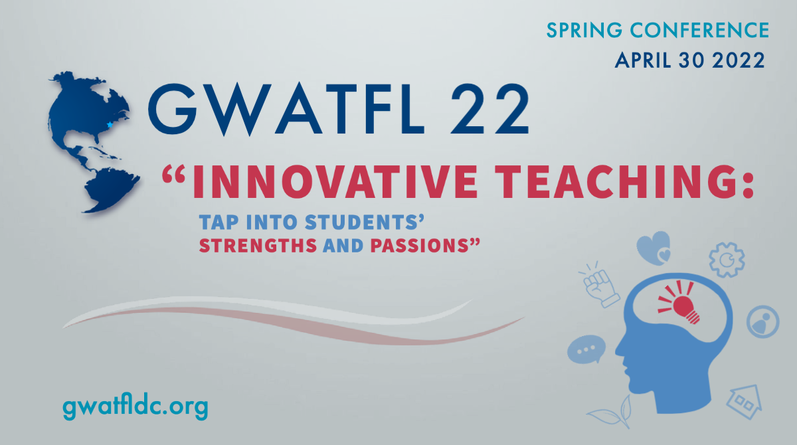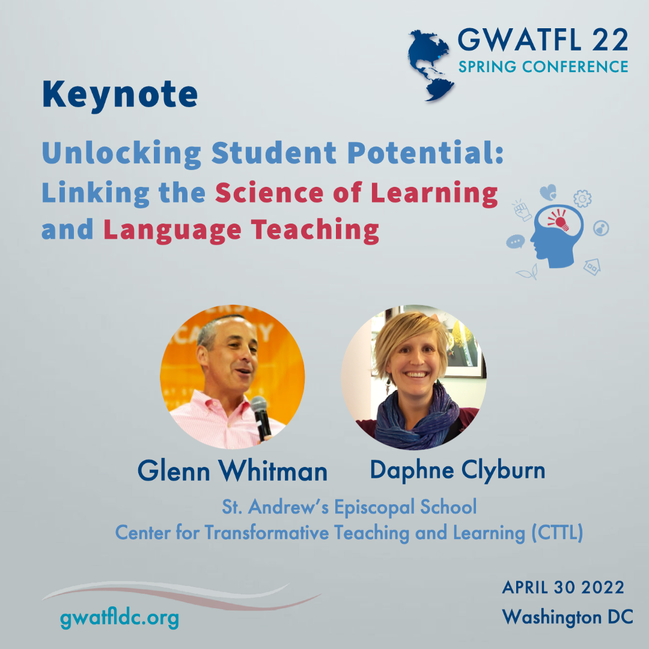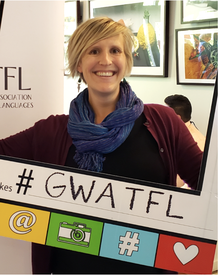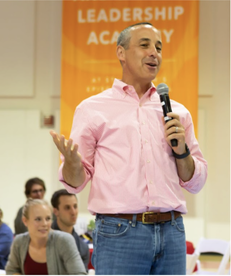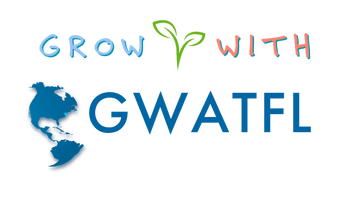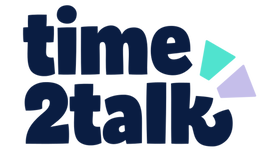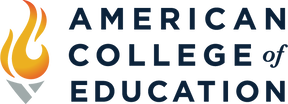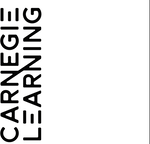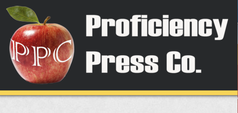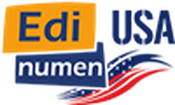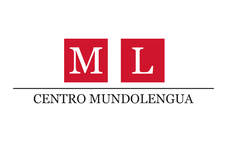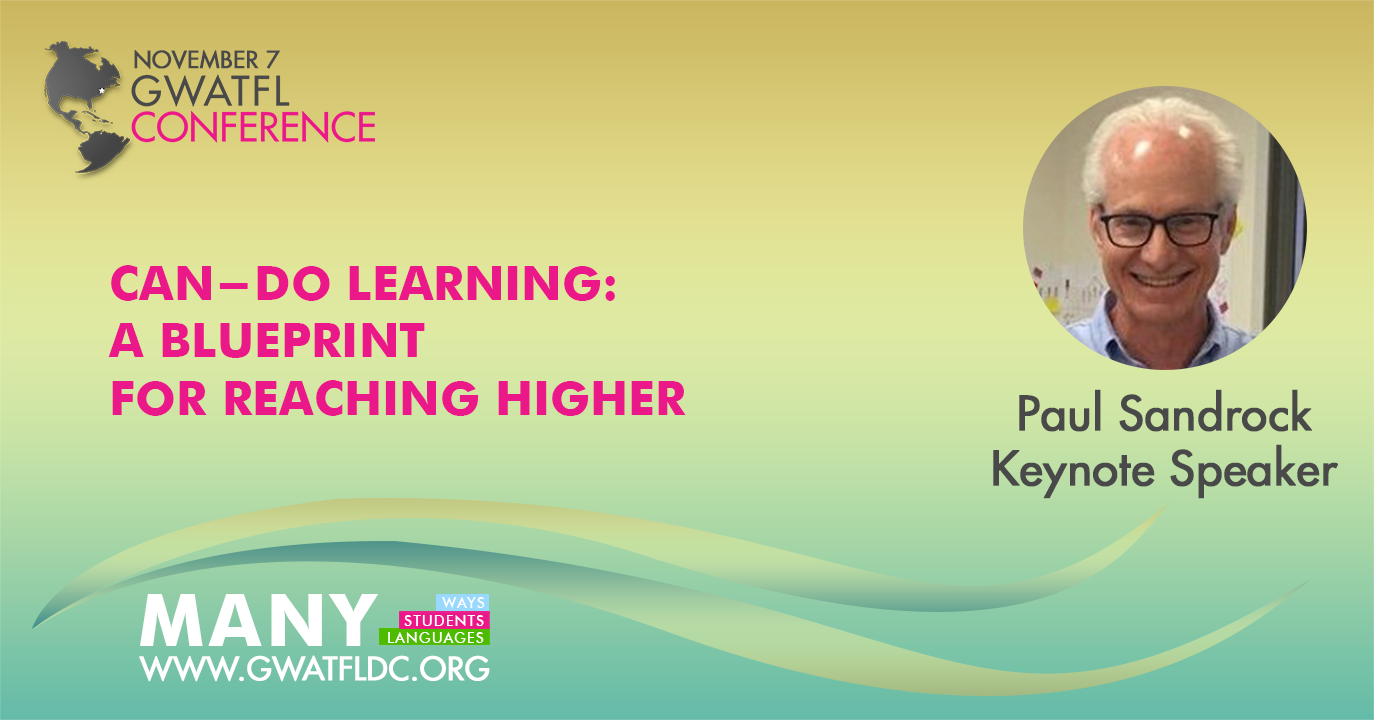GWATFL invites you to participate in our Conference for language educators, featuring sessions that focus on innovative programs, emerging trends and best practices.
We are planning for the GWATFL 2022 Spring conference to be in-person and the site to be announced soon. We will require proof of vaccination and, pending local CDC guidance at the time, and masks as well. Should circumstances necessitate going virtual we will continue with planning and delivering an awesome conference!
We are planning for the GWATFL 2022 Spring conference to be in-person and the site to be announced soon. We will require proof of vaccination and, pending local CDC guidance at the time, and masks as well. Should circumstances necessitate going virtual we will continue with planning and delivering an awesome conference!
GWATFL
|
Registration to GWATFL Conferences Includes GWATFL membership!
Register for a GWATFL conference and you are automatically a GWATFL member! |
Keynote
Unlocking Student Potential:
Linking the Science of Learning and Language Teaching
Daphne Clyburn & Glenn Whitman
St. Andrew's Episcopal School | Center for Transformative Teaching and Learning (CTTL)
Understanding how the brain works with relation to teaching and learning can help educators and their students maximize success both in and out of the classroom. But what does this mean specifically for teaching a language? Come and learn an introduction to Mind, Brain, Education Science and gain a clearer understanding of key elements of the brain’s architecture as they relate to language acquisition and cognitive load. A follow-up session will be held to take a deeper dive into specific and applicable examples relating to memory, motivation, and metacognition.
Linking the Science of Learning and Language Teaching
Daphne Clyburn & Glenn Whitman
St. Andrew's Episcopal School | Center for Transformative Teaching and Learning (CTTL)
Understanding how the brain works with relation to teaching and learning can help educators and their students maximize success both in and out of the classroom. But what does this mean specifically for teaching a language? Come and learn an introduction to Mind, Brain, Education Science and gain a clearer understanding of key elements of the brain’s architecture as they relate to language acquisition and cognitive load. A follow-up session will be held to take a deeper dive into specific and applicable examples relating to memory, motivation, and metacognition.
|
Daphne Clyburn is a Spanish teacher and the PS-12 Language Department Head at St. Andrew's Episcopal School. She is currently a CTTL/Omidyar Teaching Fellow with the Center for Transformative Teaching and Learning (CTTL) and has presented her work as a Teacher-Researcher at ACTFL, NECTFL, and GWATFL. Daphne has been working with her department on cultivating collective efficacy through inquiring into both qualitative and quantitative student-generated data. Daphne earned her MA in Teaching a Second Language from Bennington College and a BA from Wesleyan University.
|
Glenn Whitman (@gwhitmancttl) is a History teacher and Executive Director of the Center for Transformative Teaching and Learning (CTTL) at St. Andrew's Episcopal School. Glenn is the co-author of Neuroteach: Brain Science and the Future of Education, the co-designer of Neuroteach Global and co-editor of Think Differently and Deeply, the international publication of the CTTL. Glenn earned his MALS from Dartmouth College and a BA from Dickinson College and has shared the work of the CTTL through publications such as Edutopia, ASCD Express and EdSurge and presented around the world at public, private, and international school conferences including: Learning Forward, New Teacher Center, Learning & Brain and SXSWedu.
|
Schedule and Program for the #GWATFL22 Spring Conference:
| GWATFL 2022 Spring Conference Schedule | |
| File Size: | 76 kb |
| File Type: | |
Sponsored by:
George Mason Graduate Certificate in Spanish Heritage Language Education
An innovative 15-credit program providing expertise in social-justice oriented approaches to teaching Spanish as a heritage language as well as the sociolinguistic characteristics and cultural backgrounds of heritage speakers. Can be completed fully online!
An innovative 15-credit program providing expertise in social-justice oriented approaches to teaching Spanish as a heritage language as well as the sociolinguistic characteristics and cultural backgrounds of heritage speakers. Can be completed fully online!
|
Time2Talk
Teachers use Time2Talk to offer students real life Spanish practice with our team in LATAM and Spain at any time —from anywhere— through a mobile device. No scheduling and completely customizable to your lesson plans. |
|
American College of Education
•Accredited through the Higher Learning Commission • 100% online, offering a broad range of micro-credential, certificate, bachelor, graduate, and post-graduate programs and courses • Affordable, with most master’s programs under $9,500 and doctorate programs under $24,000 |
|
Carnegie Learning
Carnegie Learning provides outstanding resources for World Language. Our resources include Spanish, French, German, Chinese, Italian and Spanish for Spanish speakers. |
Past GWATFL Virtual Fall 2021 Program and Session Descriptions
Past GWATFL Virtual Spring Conference 2021
Past GWATFL Virtual Fall Conference 2020
Keynote, Panels & Sessions:
Past GWATFL 2020 in-person Fall Conference Program.
Keynote:
Title: Can-Do Learning: A Blueprint for Reaching Higher
Description:
Imagine that all language learners achieve a level of language proficiency that is high enough to proudly put on their resumé! How might your program gear up to support all learners to achieve that outcome? The World-Readiness Standards for Learning Languages and the NCSSFL-ACTFL Can-Do Statements provide the blueprint to guide learners to meet their goal. Empower yourselves as educators to unleash your superpowers; build your repertoire of high leverage teaching practices that connect with 21st century skills of collaboration, creativity, critical thinking, and communication; and focus on developing and assessing what learners CAN DO with what they know.
Title: Can-Do Learning: A Blueprint for Reaching Higher
Description:
Imagine that all language learners achieve a level of language proficiency that is high enough to proudly put on their resumé! How might your program gear up to support all learners to achieve that outcome? The World-Readiness Standards for Learning Languages and the NCSSFL-ACTFL Can-Do Statements provide the blueprint to guide learners to meet their goal. Empower yourselves as educators to unleash your superpowers; build your repertoire of high leverage teaching practices that connect with 21st century skills of collaboration, creativity, critical thinking, and communication; and focus on developing and assessing what learners CAN DO with what they know.
Become a GWATFL sponsor
|
We are thankful for the ongoing support of all our GWATFL Sponsors! It is through your ongoing support that we are able to advance our mission to provide professional development and advocacy opportunities for World Language teachers. Your support also contributes to our vision of world language educators collaborating and advocating to develop passionate global citizens. There are many opportunities to support GWATFL!
|
